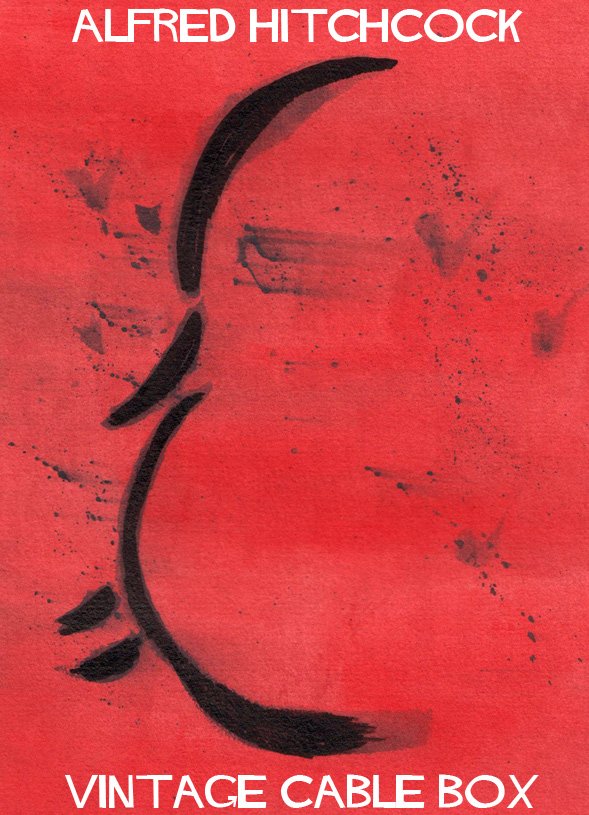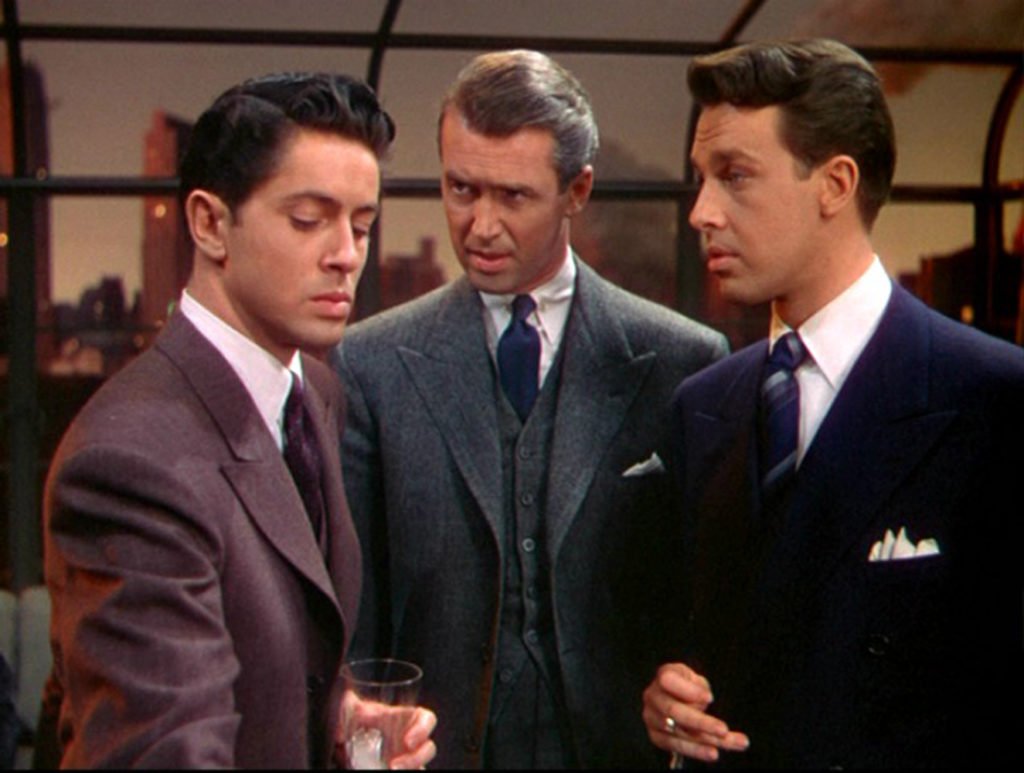“Rope, 1948”

“By what right did you dare decide that that boy in there was inferior and therefore could be killed??!! Did you think you were GOD, Brandon!!?? Is that what you thought when you choked the life out of him??!! Is that what you thought when you served food from his grave!!?? Well I don’t know what you thought or what you are but I know what you’ve done!!! You’ve murdered!!! You’ve strangled the life out of a fellow human being who could live and love as YOU never could and never will again!!!”

Rope, 1948 (James Stewart), Warner Bros.
Rope is an insane film, and it’s made on the presumption of a gag, a practical joke, perpetrated by master filmmaker Alfred Hitchcock on his unsuspecting audience. This fits into Hitchcock’s theory of suspense. When questioned about the ideas of suspense, Hitchcock offered a simple scenario: two men sitting at a table talking while a bomb (that the audience can see) ticks away underneath. The audience wants to tell the men at the table to get out of there because a bomb is about to go off. That is suspense to Alfred Hitchcock. In Rope, it is not a bomb, but a dead body. I wouldn’t know how to begin describing what unfolds unless I did it from the false beginning, the anonymous entry of our two leads; these young men, Brandon and Phillip, college pals and roomies in a beautiful New York apartment, who decide, for no other reason than lazy curiosity and “moral superiority,” to strangle their friend, David, to death.
While Brandon (John Dall) is enthralled, amused, and satisfied by the act, his partner-in-crime, Phillip (Farley Granger) is horrified and disgusted, so we get two sides of a strange yet symmetrical coin. These are two “privileged” kids. They get everything (all the basic necessities and more) they want in life, and we, as the audience, are supposed to hate them. They (mostly Brandon, the obvious leader) decide to keep the body in a trunk with the rope that was used to strangle David, and then to use that trunk as the centerpiece for a dinner party they are throwing at which they have invited all of David’s closest friends as well as his mother and father, and their school housemaster (James Stewart). Phillip is unhinged, mainly because, I believe, he is worried about being caught. We never do get into Phillip’s head, while we, perversely, understand Brandon’s motivations, and his curious vanities.
The guests file in and the “fun begins,” to quote Brandon. He wants to make this a mad experiment. Perhaps he wants clinicians and psychologists to analyze this moment until the end of time, even as he rots away in a jail cell or a padded room. He wants to know why his victim, David, was so important to all of the invited guests: a young lady engaged to David, a former suitor to David’s betrothed, the victim’s parents, and the victim’s teacher. This creates a drama in Brandon’s head, and he enjoys it. This is like a dry-run of American Psycho, wherein we see these respected, wealthy socialites conferring with one another as despicable acts are committed. Strangely enough, the tone of the movie suggests black comedy, while the abbreviated sets and long takes suggest theater, at it’s broadest. It makes you wonder what other horrid acts Brandon and Phillip are capable of.

Jimmy Stewart acts as the anger and the conscience of the audience. Since the remainder of the guests are blissfully ignorant, Stewart’s character (who had previously speculated with the young killers on the nature of evil and the imposed eugenics of murder in a socialized structure) easily comes to the conclusion. He suspects Brandon and Phillip have done something terrible, unforgivable. He chastises his young charges, repudiates their callous indifference, and sentences them to death in his eyes for their misdeeds, and you’re damned if you’re not with him as he destroys them with his words. He has such power in his words that he owns the movie for as long as he’s in it. Stewart plays games with the attendees, questions them, and makes dubious statements, but what it all comes down to is watching Brandon and Phillip collapse under his interrogations. Rope is a powerful statement.
I received a very nice message from the administrator at the Vintage HBO Guides Facebook group, and I wanted to take this opportunity to thank all of my readers. I’m forever grateful my work is being enjoyed. Thanks!
Our first cable box was a non-descript metal contraption with a rotary dial and unlimited potential (with no brand name – weird). We flipped it on, and the first thing we noticed was that the reception was crystal-clear; no ghosting, no snow, no fuzzy images. We had the premium package: HBO, Cinemax, The Movie Channel, MTV, Nickelodeon, CNN, The Disney Channel, and the local network affiliates. About $25-$30 a month. Each week (and sometimes twice a week!), “Vintage Cable Box” explores the wonderful world of premium Cable TV of the early eighties.
